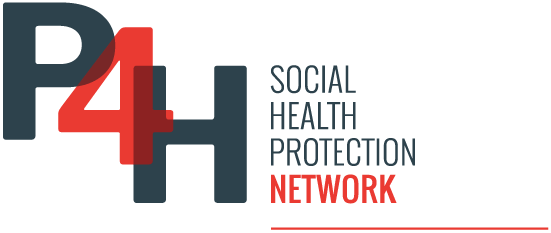The number of documents available on the P4H Network’s digital platform reflects the network’s scope of work. The majority of documents are primary source materials created by country nationals or resources produced by organizations working in social health protection (SHP) and/or health financing (HF).
Financing health system elements in Africa: A scoping review
A peer reviewed research article published in PLOS ONE tracks the data on types of health financing in Africa. Abstract Countries that are reforming their health systems to progress towards Universal Health Coverage (UHC) need to consider total resource...
Financing the future of global health
An article by PATH on the need and ways for more and better investment in primary health care to achieve universal health coverage. Primary health care (PHC) has been proven to be the most cost-effective way to improve population health outcomes. Investing in PHC is...
Estonia: health system summary, 2022
Abstract This Health system summary is based on the Estonia: Health System Review published in 2018 in the Health Systems in Transition (HiT) series, and is significantly updated, including data, policy developments and relevant reforms as highlighted by the Health...
Is contributory health insurance indeed an addiction to a bad idea? A comment on its relevance for low- and middle-income countries
Abstract Financing of health systems is an enduring concern world wide. Yazbeck and colleagues in their paper make an important point that when there is a choice between financing in which contributions from citizens take place in the form of generalised taxes versus...
Self-employment as a socio-economic problem in Kazakhstan
The analysis showed that in the structure of the group of self-employed in Kazakhstan by type of activity, the agricultural sector dominates - 33.3%. Most of the self-employed are also concentrated in distribution services (trade 32.1%, transport and warehousing...
One million lives saved per year: A cost–benefit analysis of the global plan to end tuberculosis, 2023–2030 and beyond
The report One Million Lives Saved Per Year: A Cost–Benefit Analysis of the Global Plan to End Tuberculosis, 2023–2030 and Beyond, published in the Journal of Benefit-Cost Analysis, evaluates the economic and health impacts of scaling up global efforts to combat...
Chatham House: Public international financing for global health priorities
Abstract The overall environment for raising public international finance for global health priorities is getting tougher, with some widely supported activities such as pandemic prevention, preparedness, and response proving much harder to fund than might be expected...
Adoption of decree setting membership and registration terms and conditions -AMU
Le Conseil des ministres du Burkina Faso, tenu le mercredi 9 août 2023, a adopté 5 décrets indispensables à l'opérationnalisation du Régime d'assurance maladie universelle.Ces décrets étaient attendus depuis la promulgation de la loi RAMU du 5 septembre 2015. Ils...
Sharing experiences on the universal health cover programme in Côte d’Ivoire
Building on a ten in country analysis of SHP and HF institutional frameworks initiated in the previous reporting period, P4H-CD provided in-depth support to P4H-CFPs from Cote d’Ivoire and Cambodia with the support of a WHO contracted consultant. The consultant...
Executive Summary: Webinar 3, Cross Regional Experiences on Social Health Protection for Migrant Workers and Their Families
The P4H Network and Australian National University (ANU) have organised a webinar series to promote knowledge sharing and dialogue on Social Health Protection (SHP) for Migrant Workers and Their Families. Here's presenting the Executive Summary of the Webinar. The...
Mozambique: Analysis of the Socioeconomic Effects of User Fees in the Public Health Sector
A Report by the Citizen's Observatory for Transparency and Good Governance in the Health Sector analyses the impact of health services user fees on disadvantaged populations in Mozambique. Language: Portuguese
Financing Universal Health Coverage in the Republic of Congo: Opportunities for Domestic and External Resource Mobilization
This paper examines health financing options for achieving Universal Health Coverage (UHC) in the Republic of Congo, focusing on domestic and external resource mobilization. It highlights the challenges Congo faces, including a significant financing gap, slow...
A study on cost-effectiveness and budget impact of HPV vaccination programs in Kenya
The study evaluates the cost-effectiveness and budget impact of HPV vaccination programs for ten-year-old girls in Kenya as the country transitions from Gavi, the Vaccine Alliance, support. Using a static cohort model, it compares four vaccines (CECOLIN, CERVARIX,...
Strategy for integrating Results-Based Financing into the Uganda intergovernmental fiscal transfers program
In Uganda, Results-Based Financing (RBF) is highlighted as a core intervention to transform health purchasing from a traditional input-based budgeting approach to one that actively encourages performance improvements. This strategy's goal is to institutionalize RBF as...
From Universal Health Coverage services packages to budget appropriation: the long journey to implementation
An analysis of how essential packages of health services (EPHS) can (or cannot) help foster more and better health financing systems. Abstract EPHS potentially contribute to universal health coverage (UHC) financing through several pathways. Generally, expectations on...
